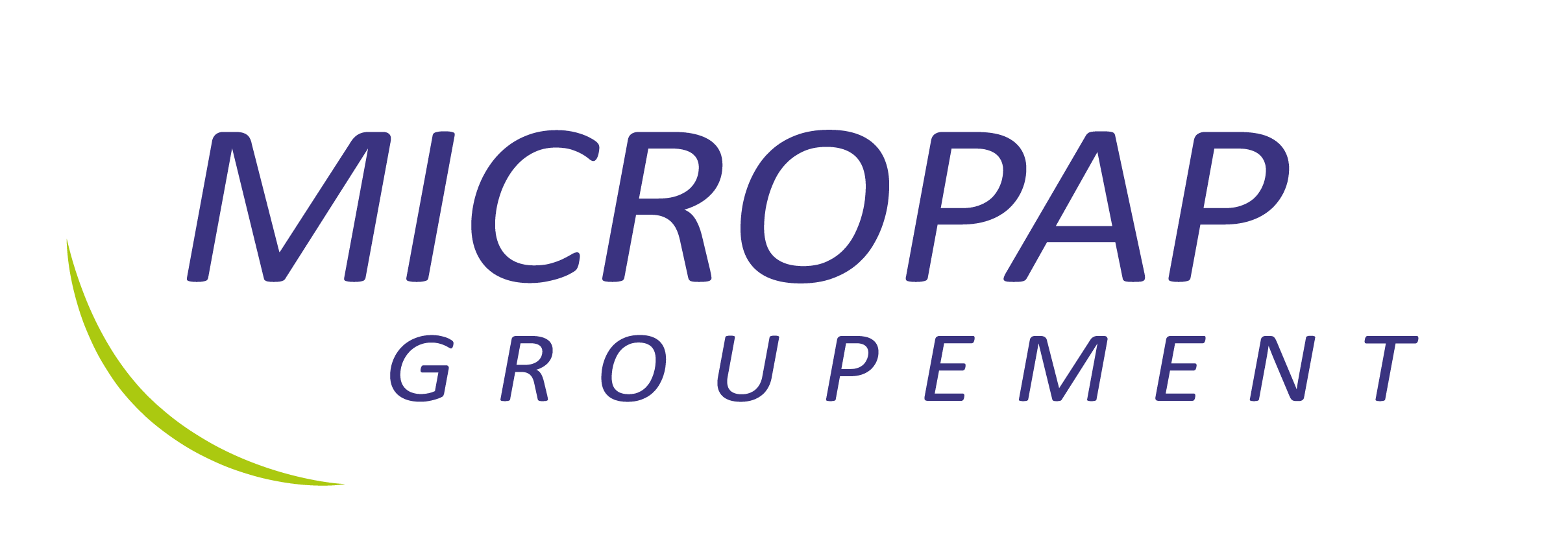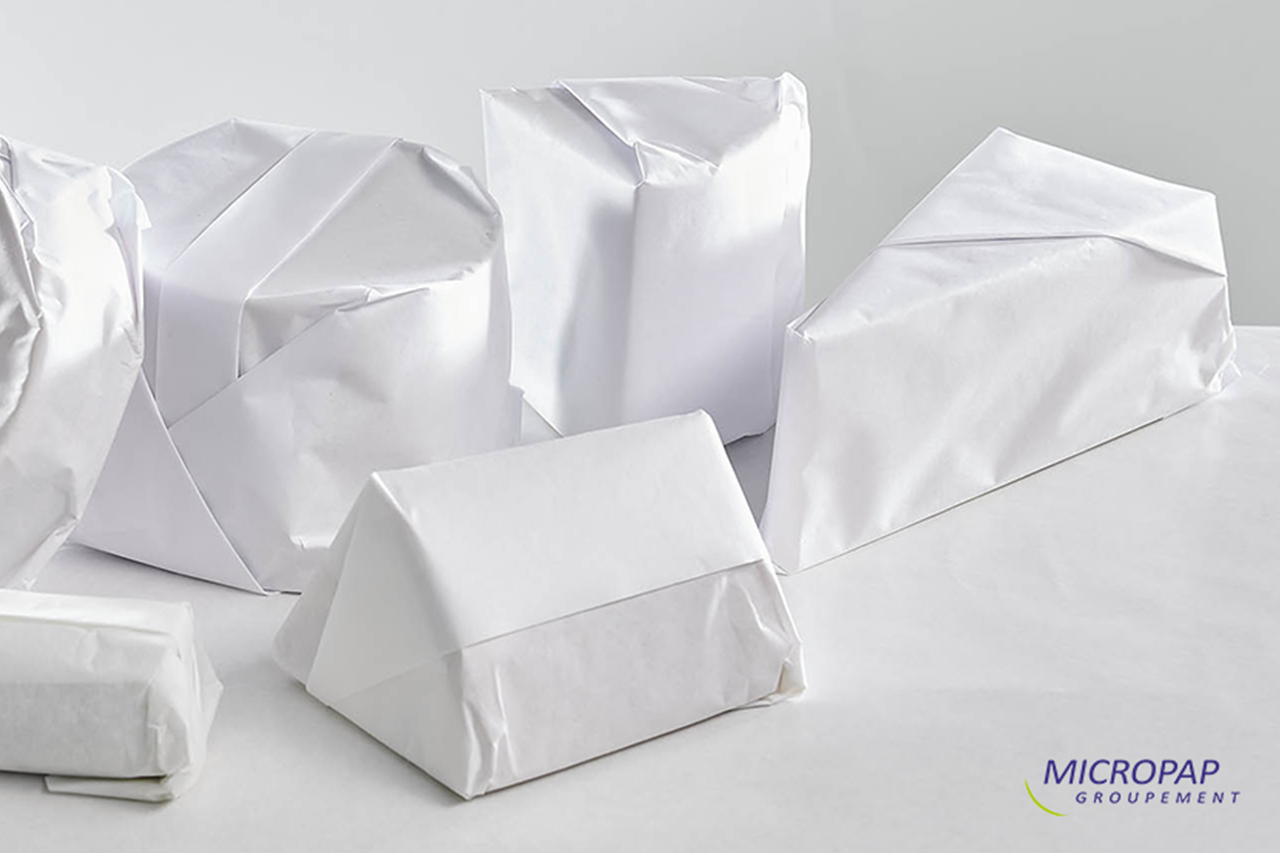-
Jul 06 2022 Micropap rappelle les nombreux atouts des papiers enduits paraffinés
Face à certaines allégations péjoratives ou fausses sur l’usage du papier enduit paraffiné – concernant son aptitude au recyclage et au contact alimentaire notamment –, le Groupement Micropap* a publié, en février, un communiqué faisant le point sur les atouts de ces papiers spéciaux. Représentant plus d’un milliard de portions emballées par an avec ses marques françaises Micropap® et Végépap®, Micropap rappelle les avantages de cet emballage primaire très technique qui préserve les qualités organoleptiques du produit, dans le respect des normes de sécurité alimentaire.
En outre, il s’ajuste parfaitement à la conservation et même à l’affinage des fromages.
Le papier paraffiné est largement majoritaire dans l’emballage des fromages à pâte molle Aisément identifiables, ces papiers peuvent aussi être intégrés aux circuits de collecte municipale. La fibre est récupérée et l’enduction est éliminée lors des étapes de classage. Ainsi, le papier enduit paraffiné fromager Micropap L et les emballages complexes fromagers Micropap CX L ont reçu l’attestation de recyclabilité du Cerec (Comité d’évaluation de la recyclabilité des emballages papier-carton), sur la base d’un rapport positif du Centre technique du papier (CTP). Ces papiers sont ainsi recyclables dans la filière “Emballage papier-carton” selon la norme EN 13430 “Exigences relatives aux emballages valorisables par recyclage matière”. En outre, les papiers enduits paraffinés Micropap® et Végépap® sont compostables (label “OK Compost industriel” de TUV Austria selon la norme EN 13432). « Nos adhérents signent une charte d’engagement, a précisé Didier Richardot, qui préside ce Groupement. Nous travaillons ensemble à l’adaptation sur-mesure au produit, à la diminution du poids pour un gain logistique et environnemental ou encore à l’éco-conception. Et la fabrication est 100 % française. » Par ailleurs, conformément au Règlement européen 1935/2004, les cires minérales et végétales sont aptes au contact alimentaire. Leur grande stabilité à température ambiante, leur neutralité et leur inertie en font des composants éprouvés de ce type d’utilisation. Selon Micropap, le papier enduit paraffiné est largement majoritaire dans l’emballage des fromages à pâte molle. Dans le secteur des métiers de bouche (boucherie-charcuterie-traiteurs & artisans-fromagers), sa part ressort globalement à égalité (50/50) avec les autres solutions d’emballages, notamment le papier/PE.
(*) Le Groupement Micropap est composé des sociétés suivantes : Brodart Packaging, Richard Laleu, Amcor, Cellpack Packaging, Entourage et Sodipa Emballages. Ahlstrom-Munksjö et Paramelt sont également membres associés.
Valérie LECHIFFRE
-
Feb 17 2022 Wax-coated paper: The advantages of food packaging in tune with the times
Groupement Micropap highlights the advantages of wax-coated paper. Contrary to popular belief, it can be easily recycled in the “paper/board packaging” industry and preserves the organoleptic qualities of the product in compliance with food safety standards. But these advantages go beyond that, as this highly technical primary packaging is perfectly suited to the conservation and even the maturing of cheeses. Not to mention its light weight, which further reduces its environmental impact. Wax-coated paper? A packaging solution that ticks all the boxes for today’s challenges.
Wax-coated paper is part of the circular economy
Yes, wax-coated paper can be recycled! Composed mainly of paper fibre by weight, Micropap® and Végépap® wax-coated paper can be recycled in the “paper/board packaging” industrial sector. Easily identifiable, it can be included in the local collection route, which makes sorting easier.
Technically, the paper fibre is recovered, and the coating is removed during the grading process. Wax-coated paper for cheese1 and complex cheese packaging2 1 and 2 have been certified as recyclable by CEREC (the committee for the evaluation and recyclability of packaging) on the basis of a positive report by the CTP (Centre Technique du Papier) in the paper/board packaging sector in accordance with standard EN 13430 Requirements for packaging recoverable by material recycling .
In addition, Micropap® and Végépap® wax-coated papers are also compostable: since 2012, they have obtained the OK compost INDUSTRIAL label from TUV AUSTRIA in accordance with standard EN 13432.
1 MICROPAP L – wax-coated paper packaging for cheese: recyclable in category 5.02A/standard NF EN 643 grouping paper/board packaging from the local route, 11/2020.
2 MICROPAP CX L – complex cheese packaging 1 and 2: recyclable in category 5.03A/standard NF EN 643 grouping packaging from the local route, 04/2021.Proven food safety
The issue of food safety is of course central to food packaging. From this point of view, mineral and vegetable waxes, in accordance with European Regulation 1935/20043, are suitable for contact with food and have undeniable advantages that have been recognised and appreciated for decades. Their high level of stability at room temperature, their neutrality and their inertness make them proven components for contact with food.
Didier Richardot points out in this respect that it is the responsibility of each manufacturer to comply with the regulations in force, in particular Article 3 of Regulation 1935/20043 and the DGCCRF’s (General Directorate for Competition Policy, Consumer Affairs and Fraud Control) guide on “Paper and board”4. He concludes: “The wax used in our coated paper is highly purified to be suitable for contact with food. With perfectly controlled transformation and coating processes, Micropap® and Végépap® papers provide premium quality that complies with regulations concerning migration into food. A guarantee for the consumer.”
About Groupement Micropap
For 60 years, Groupement Micropap has brought together manufacturers of wax-coated papers for food packaging, to ensure technological development and shape progress. As a pioneer, the group has relied on the advantages of paper, a material derived from renewable resources, since its creation. From SMEs to world leaders, its members share a common goal: to manufacture environmentally-responsible primary packaging with high added value. The group has developed two innovative French brands, Micropap® and Végépap®, with more than 1 billion portions packed annually, offering both manufacturers and consumers a responsible choice.
3 Regulation (EC) n°1935/2004 of the European Parliament and of the Council of 27 October 2004 on materials and articles intended to come into contact with food and repealing Directives 80/590/EEC and 89/109/EEC.
4 MCDA Note n 4(V02–01/01/2019): Food contact suitability of organic plant fibre materials intended to come into contact with food.



